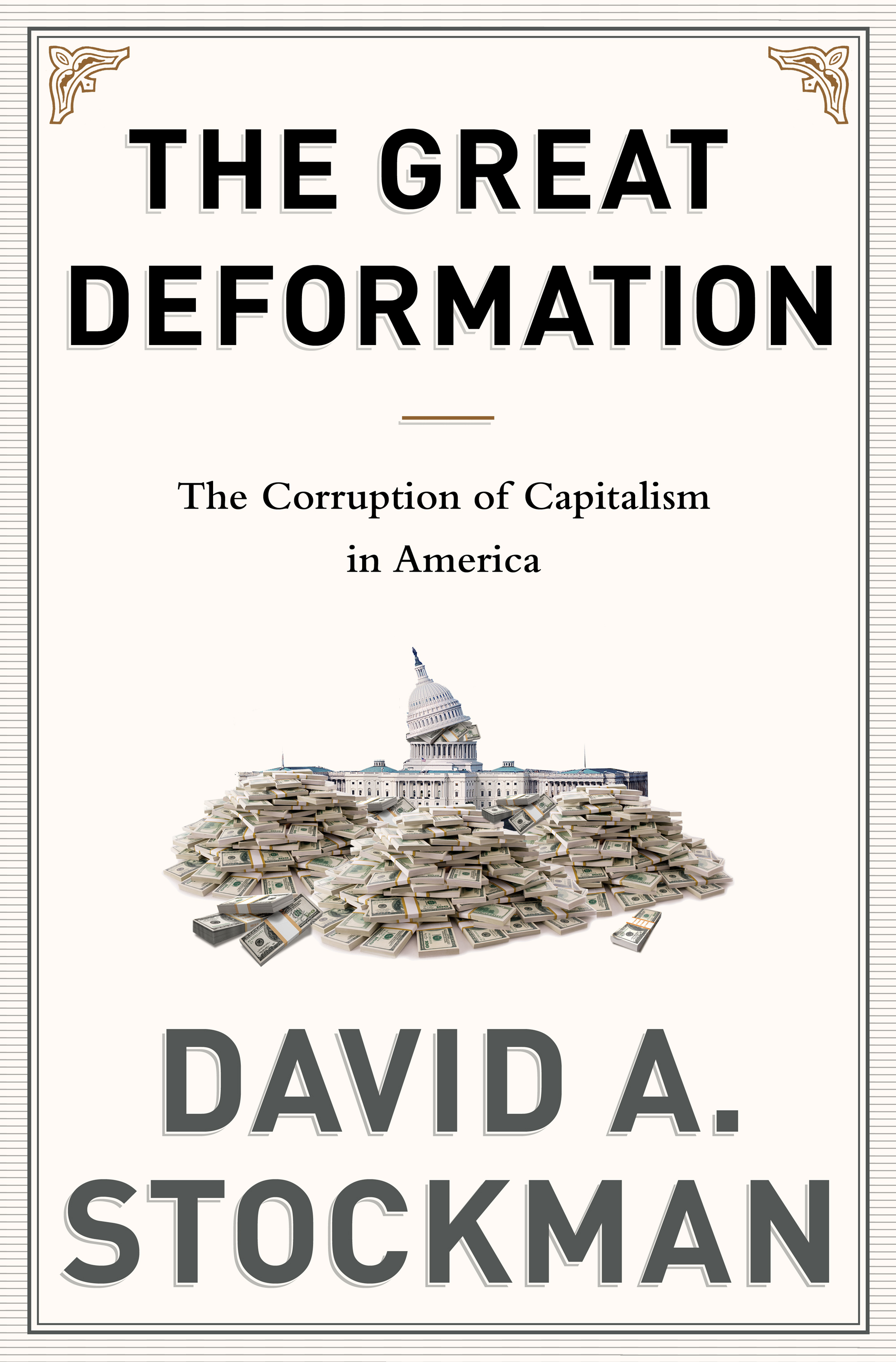
The "fiscal cliff" gong show which traumatized the nation at the end of 2012 was rooted in a destructive symbiosis between Wall Street and Washington. It was portrayed by the mainstream media as an impetuous display of partisan strife, petty politics, and willful stubbornness, especially among Tea Party Republicans. But in reality the "fiscal cliff" was a boogieman trumped up by traders who needed a stock market prop and Washington politicians in thrall to the sundry Keynesian doctrines of tax-cutting and spending stimulus.
In truth, nearly every single item that constituted the fiscal cliff was a perfectly appropriate and rational fiscal policy action to reduce the $1.2 trillion federal deficit that persisted menacingly during the fourth year of a business recovery. As has been seen, the expiring $110 billion payroll tax abatement had been a stupid idea from the beginning, and the $300 billion Bush tax cuts for everyone had been unaffordable for more than a decade.
Likewise, the alternative minimum tax rise of $125 billion was only going to hit households which for years had not been paying their fair share of taxes due to loopholes. Most especially, the pending automatic 8 percent cut (sequester) of defense spending was a no-brainer relative to the insane explosion of defense spending from $300 billion under Clinton to $700 billion at present.
Ironically, therefore, there was good reason for Washington's inertia and its inability to fashion a consensus to avert the cliff. The clownish action of the Senate in the wee hours of New Year's morning in enacting a pork-dripping Christmas tree of tax giveaways was an outrage not because of the manner in which it was done, but because it was done at all.
In truth, with the awful specter of "peak debt" lurking around the corner, the $650 billion per year of spending cuts and revenue increases should have been permitted to go forward because they constituted a rare instance in which meaningful long-term deficit reduction could have been obtained without need for legislative action and the impossible, labored maneuvering required to achieve majorities in our current fractured system.
In fact, Washington blew an opportunity to sit on its hands while enabling a permanent $4.6 trillion 10-year shrinkage of the deficit, a meaningful down-payment on the urgently needed return to fiscal sobriety. And it could have been done politically. The wild arm-waving about the fiscal cliff that animated Washington and financial TV did not have much resonance with the Main Street electorate; the unwashed public was more or less resigned to taking its lumps.
By contrast, there can be little doubt that the near hysteria was fomented by Wall Street and its organs and shills in financial TV. After decades of getting its way, Wall Street simply presumed it was entitled to any and all actions by Washington that might avert a recession and thereby keep the stock averages high and the "risk-on" trades prospering.
At the same time, official Washington did not have to be coaxed into doing Wall Street's bidding. K Street was automatically mobilized to defend its tax goodies and DOD contracts. Likewise, the ranks of elected politicians were prepared to bang the deficit lever hard, having received decades of house-training on the notion that the US economy should be propped up with fiscal "stimulus" whenever it "underperformed" its full employment potential.
As a practical matter, economic "underperformance" was taken by GOP tax cutters and liberal spenders alike to mean GDP growth of under 3 percent and unemployment over 6 percent. Since the reality of the American economy fell far short of those vestigial benchmarks, politicians reflexively insisted that the state continue to dispense what amounts to economic waste (e.g., unnecessary defense spending) and unaffordable gifts to the middle class (i.e., the Bush tax cuts) so that the private sector could spend and consume beyond its means; that is, avoid a recession that is inevitable because fiscal retrenchment is unavoidable.
It thus happened that needing to avoid a collision with peak debt, Washington kept racing straight toward it, desperately searching for a political consensus to ensure that Uncle Sam would incur a trillion-dollar deficit for the fifth year in a row. Indeed, the definition of enlightened and courageous policy action had taken on a perverse aspect: statesmanship now consisted of cancelling any and all previously enacted policy measures which would cause too little red ink.
[Thus, ironically, the] pending "harsh" fiscal contraction measures were not some gratuitous roadblock that had been erected by enemies or aliens; that is, arbitrary impediments to the American economy's divine right to permanent prosperity, even if borrowed. Instead, they embodied the trap left by years of national fiscal cheating on a grand scale; that is, Washington's pretense that just one more year of fiscal freeloading would be enough to put the American economy back on the road to self-sustaining growth.
In truth, the fiscal cliff is permanent and insurmountable. It stands at the edge of a $20 trillion abyss of deficits over the next decade. And this estimation is conservative, based on sober economic assumptions and the dug-in tax and spending positions of the two parties, both powerfully abetted by lobbies and special interests which fight for every paragraph of loophole ridden tax code and each line of a grossly bloated budget.
Fiscal cliffs as far as the eye can see are the deeply troubling outcome of the Great Deformation. They are the result of capture of the state, especially its central bank, the Federal Reserve, by crony capitalist forces deeply inimical to free markets and democracy.
This an excerpt from David Stockman's new book, THE GREAT DEFORMATION: The Corruption of Capitalism in America, published today by PublicAffairs.
